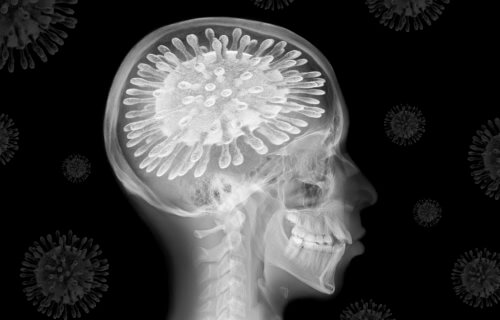HELSINKI, Finland — A gene that makes it more likely someone will develop Alzheimer’s disease may also increase the likelihood patients with COVID-19 have severe or life-threatening symptoms.
Studies show that individuals carrying the APOE4 allele genetic variant are more likely to deal with Alzheimer’s during old age. According to the Mayo Clinic, about 15% to 25% of the general population carries the gene. Researchers from University of Helsinki and the Helsinki University Hospital now say that APOE4 also appears to have a connection to people who have severe COVID-19 symptoms or develop long COVID.
“The common ε4 allele of the APOE gene appears to be associated with a heightened risk of severe COVID-19 in the Finnish population. The significance of APOE4 is emphasized in the Finnish population, which may be due to its genetic homogeneity,” says consultant neuropathologist Liisa Myllykangas in a university release.
More specifically, the report investigated any and all connections between the APOE4 allele and the severity of COVID-19 among the Finnish population. Study authors also analyzed microscopic cerebral changes in cadavers infected with COVID-19 and looked into any connections between APOE4 and mental fatigue complaints reported six months after onset of the virus.
More brain bleeding among COVID patients with this gene
The team assessed over 46,000 Finnish citizens, with over 2,600 testing positive for COVID-19. To investigate microscopic changes in the brain due to a COVID infection, scientists examined another 21 corpses with COVID-19. Finally, researchers included an additional dataset encompassing 156 people experiencing mental fatigue symptoms.
Results show APOE4 allele carriers are more than twice as likely to develop COVID-19 symptoms severe enough to warrant intensive care in the event of infection. It’s also important to note that among patients with severe COVID-19 symptoms, the team found more microscopic hemorrhages (bleeding) in APOE4 carriers.
Chief physician Johanna Hästbacka adds that this gene variant may influence the severity of long COVID symptoms as well, especially for those needing hospitalization due to their initial infection. Previous studies show patients with long COVID can experience over 200 different symptoms for months following a coronavirus infection.
“In the study, mental fatigue, which was defined as difficulty in directing attention and concentrating, emerged as one such symptom,” Hästbacka says.
Growing link between memory problems and COVID
Moving forward, study authors say they need to replicate their work using a larger sample of COVID-19 patients. At the moment, this study cannot definitively produce any conclusions about COVID’s link to this gene.
“To ascertain our findings, these phenomena must be investigated in larger datasets,” Myllykangas notes.
The team says future research should also focus on finding out if COVID-19 influences the onset of memory problems and dementia among APOE4 allele carriers.
“To answer this question, long-term follow-up studies on patients recovered from COVID-19 are needed, as is basic research focused on the combined effects of APOE4 and systemic inflammation on the mechanisms of memory in the brain. Our research group has already launched these lines of further research at the University of Helsinki and HUS,” Myllykangas concludes.
The study is published in the journal Acta Neuropathologica Communications.
